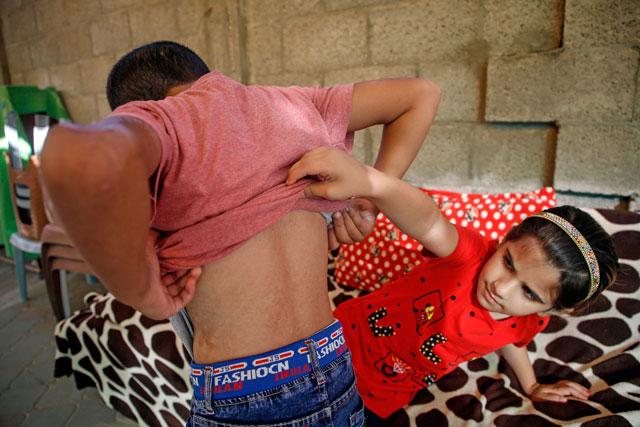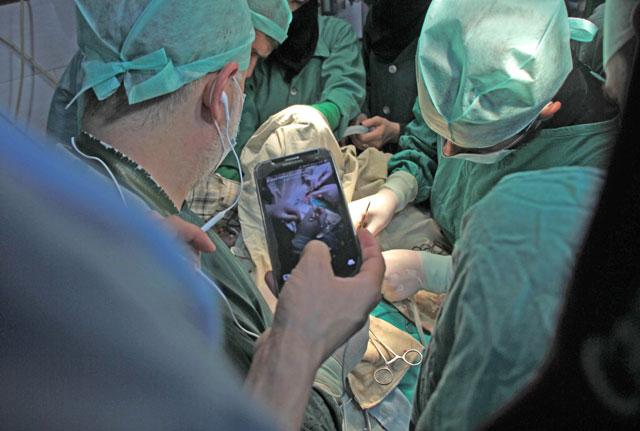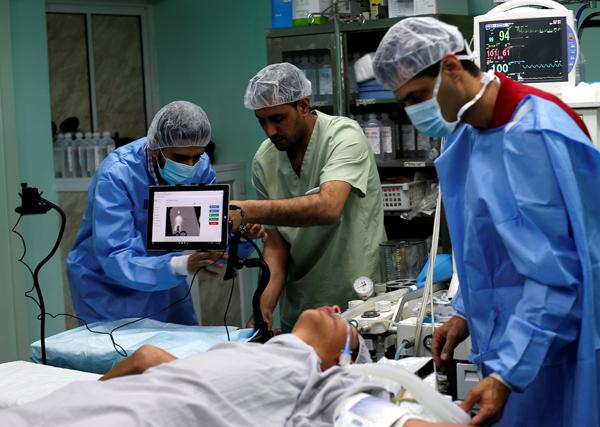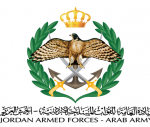You are here
Gaza plastic surgeons overwhelmed by war injuries
By AFP - Aug 04,2014 - Last updated at Aug 04,2014
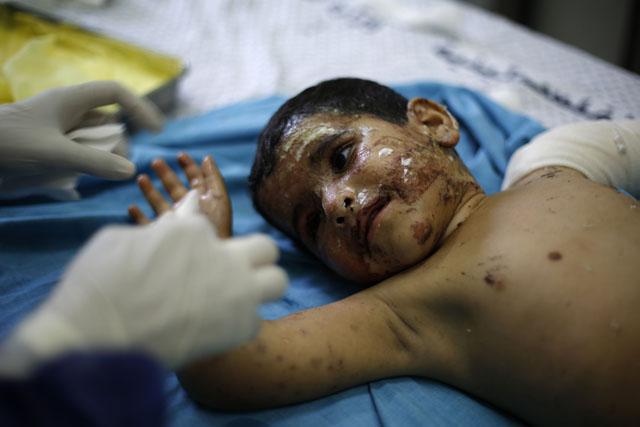
GAZA CITY — Lying on his bed in a Gaza hospital, three-year-old Yamin now sees the world from behind burns which have disfigured him for life.
The tiny boy is just one of hundreds of burn victims and those wounded by Israeli shell fire overwhelming Gaza’s sole working operating theatre for plastic surgeons.
He also has burns on his back and multiple fractures suffered when an Israeli strike decimated his family and destroyed their home in Al Buraj, central Gaza, last week.
It was the evening. The start of Eid Al Fitr, the festival marking the end of the holy month of Ramadan.
In a single strike, the house was turned to rubble and 19 people lay dead. Yamin, miraculously, was the sole survivor but he was left an orphan and badly burnt.
He was taken to a clinic then rapidly transferred to the burns department at the Shifa Hospital in Gaza, where he cries, lying naked, and where a handful of surgeons are now confronted with the endless horrors of the war.
Every day ambulances rush in with shattered lives: charred or bloodied humans who will die a few hours later on their stretchers.
The survivors transfer to an operating table, sometimes the modest one in the burns unit, the only one in the whole of Gaza that plastic surgeons can use.
Local medics say 1,829 Palestinians, mostly civilians according to the UN, have died since the latest confrontation between Israel and Hamas began on July 8.
At least another 9,000 have been hurt, many seriously.
“There are very few light injuries in this war,” says Ghassan Abu Sitta, a plastic surgeon from the American University of Beirut, sent a week ago by the Medical Aid for Palestinians (MAP) organisation to help out in Gaza.
“My feeling is around 70 per cent would have some kind of permanent deformity, either in terms of scarring or in terms of functional deformity... They will never be the same again.”
His worst case? “An 8 year-old boy who basically lost half of his face including one eye and lost the other eye with shrapnel in. What I needed to do is reconstruct the face just to cover the wounds.
“The eyes are lost. He lost all his family, his ability to care for himself has been completely destroyed. There is no future for him, he keeps asking why they have turned the lights off,” Dr Abu Sitta says.
“The size and the magnitude of the carnage that has affected Gaza is beyond the capacity of any health system, let alone a health system that has struggled with eight years of siege,” says the surgeon, who was also in Gaza during Israel’s “Cast Lead” operation at the end of 2008 and start of 2009.
This time the fighting has caused more deaths and more wounded. And worse injuries.
“The fact that we are unable to evacuate patients outside Gaza means that all of these patients are inside the system,” the surgeon says.
Then he turns away to perform a skin graft on a young man with a pierced foot and 10-centimetre crater on his calf, through which his tibia is visible.
Hospitals struck
For the past month, every day brings deliveries of bodies, wounded people and trauma to Gaza’s hospitals.
“We are now looking at a health and humanitarian disaster,” James Rawley, UN humanitarian co-ordinator for the Palestinian territories, said at the weekend.
A third of hospitals have been hit during the fighting and the violence has prevented nearly half of medical staff from reaching the clinics and health centres that are still standing.
“The current state of the health system is disastrous because the people are exhausted, many hospitals have been affected by the bombardments, and people are afraid to go to hospital,” as sometimes shooting is taking place along their route, says Nicolas Palarus, head of operations in Gaza for Doctors Without Borders.
Palestinian medical staff, the backbone of the local health system, face “stress from the fighting, being far from the family, separated, widespread fatigue, lack of some medicines”, he says.
“From primary healthcare to the big hospitals, the whole chain is disrupted. The system is in a catastrophic state,” Palarus says.
On this day in the burns unit, medical workers paint an antibacterial ointment onto little Yamin, naked, frail and frightened. It will help his skin scar over.
But his cousin and her husband, now his guardians, interrupt. Maybe the best thing for the tiny tot, they say, would be to evacuate him from Gaza. To get him far away from the horrors of the war.
Related Articles
AL ZAWAIDA, Palestinian Territories — It was the summer of 2014, when a deluge of steel fell on Gaza.
Douma, Syria — Surgical consultations via Facebook, reused sutures and gloves, and half-doses of expired drugs: doctors in a besieged opposi
BEIT LAHIYA, Gaza/BEIRUT — At a hospital in northern Gaza, a young patient is being prepared for hand surgery as one of the doctors leading


